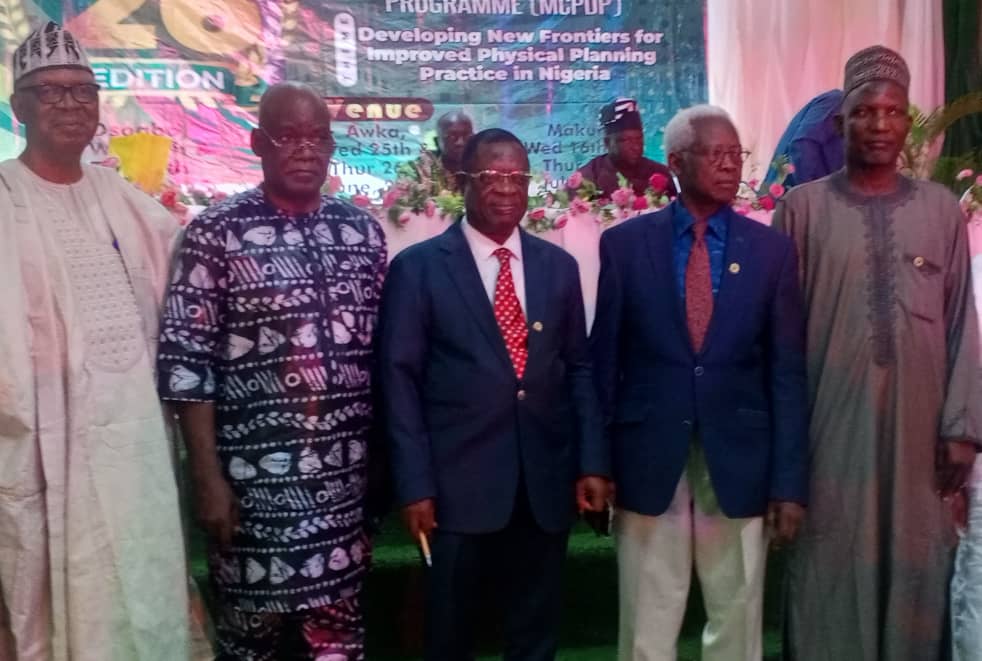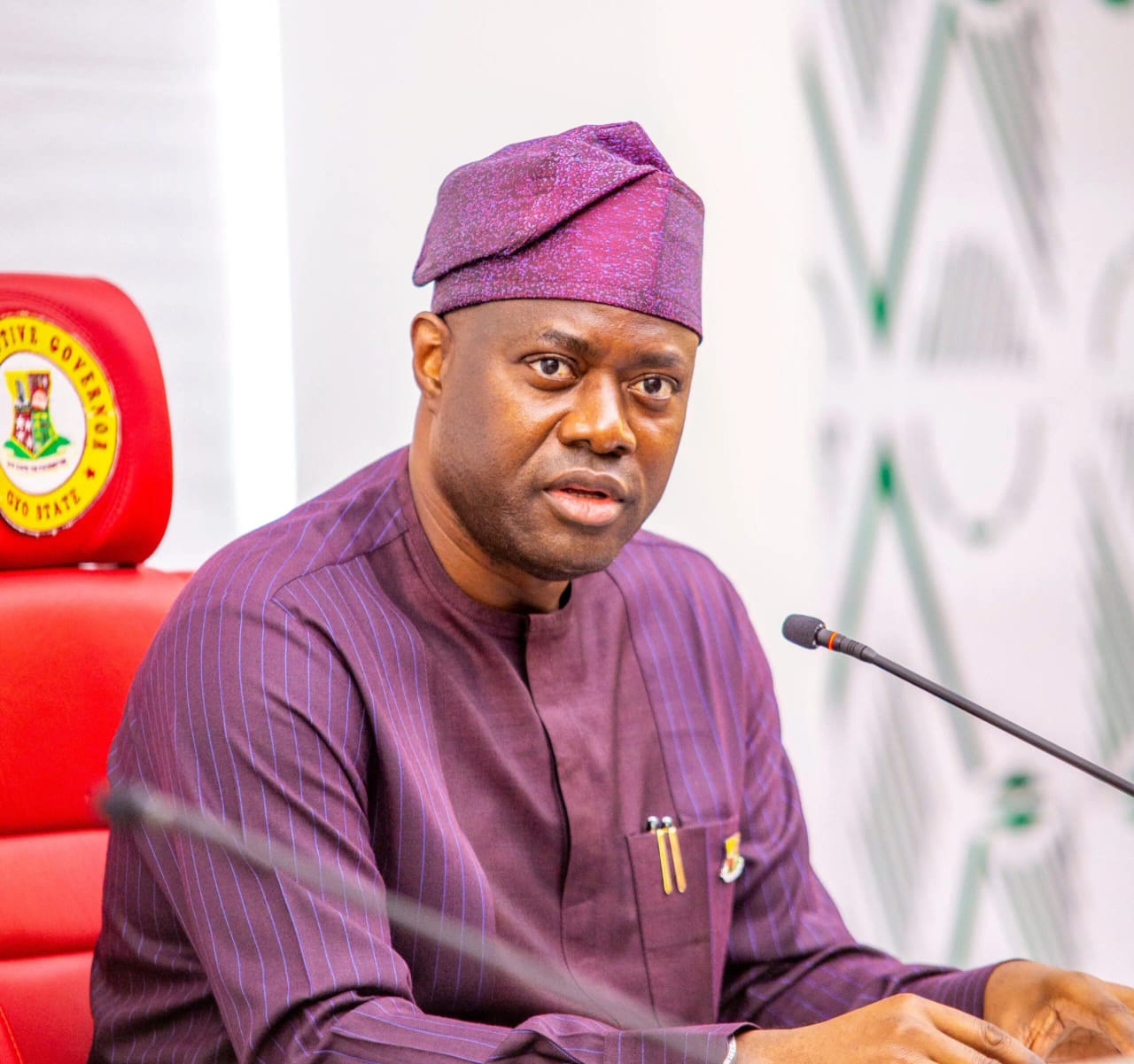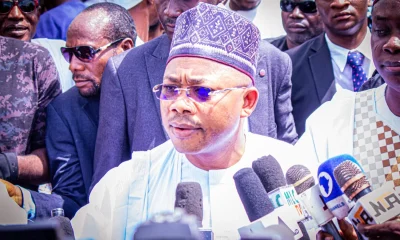Uncategorized
New Frontiers are not about Bullets, Guns, it’s About Brains, Says Obianime

From Mike Tayese, Yenagoa
A Prof. of Pharmaceutical Sciences University of Portharcourt, Prof. A.W. Obianime has said that the prospect for the future of Ijaw Nation looks good but will require a broad review of the people’s emotional and psychological state.
He said there should be a reorientation of the people, saying the need for environmental and social Justice is paramount and to enshrine corporate and environmental responsibility is an aspect they need to pursue and promote. Obianime handed down this during a Public Lecture/Dinner organized to mark the 2025 Isaac Boro Day celebration at the state Banquet Hall Government House Yenagoa, Bayelsa state capitalAccording to him, the existing lawsuit and social campaign should be used for the development of the people and the region. “We must change the erroneous narrative by people who mean us no good and present us as aliens, senseless Agitators or militants, not as educated people seeking their rights, justice and Fairness”.In a lecture titled: The Ijaw Struggle for Self Determination: Challenges, New Frontiers and Prospect, Prof. Obianime said, “Politics and the allure of monetary gains and their supposed benefits have disunited our people and therefore there is no more Ijawness in our daily operations”. Rather than ljaw, we talk along party lines (PDP VS APC).”The build-up to 2027 is more important than the jaw National and ancestral interest. Peace building, Dialogue and constructive engagement between the Ijaw nation, the federal government, oil companies, and civil society are key to lasting peace and mutual development.”The Ijaws as an ethnic nationality must take action, their cause must be given the needed global outlook. Our message must be well packaged and placed on the front burners of international human rights platforms, environmental courts, and policy institutions.”Our youths are our future and empowering them with the right information via formal and non-formal education, global exposure and leadership training will sustain the desire for a better future, keep alive the struggle and secure the dream.”We must begin to learn to accommodate and network our interests. We must purposefully go out to make new friends, establish new relationships and begin a new phase of what I consider a high-powered PR activity.”Finally, the new frontiers are not about bullets and guns, it is about brains and brawn. The Ijaws must rise above petty educational pursuits but seek education that is liberating and fair. Therefore brethren, if we must establish the concept of fairness and justice as it concerns the ljaws people, we must also preach it as a national ethos because injury to one is an injury to all” , he said.While acknowledging some challenges said, theater and the complexities/complexion of the war or survival in the Nigerian political space have changed. Saying the physical environment has changed due to environmental degradation and toxicity.In his closing remark, Secretary to the State Government, Prof. Nimibofa Ayawei said, the younger generations should emulate what Issac Adaka Boro stood for during his lifetime.According to him, Boro’s struggle contributed to the creation of the old Rivers state and now Bayelsa state too was created. “Our politicians, youths and all stakeholders in Ijaw Nation should see the interest of Ijaw man above their personal interest “.Uncategorized
Financial Scandal: Ebonyi Indigenes demand Sack of SSG Over Diversion of State Resources

… Give Governor Nwifuru 48 Hours Ultimatum
By Mike Odiakose, Abuja
Following a reported Court order ordering the interim forfeiture of alleged one billion naira (N1 billion) diverted by the Secretary to the Ebonyi State Government (SSG), Prof Grace Umezuruike, a governance and accountability platform, the Association of Ebonyi Indigenes Socio-Cultural in the Diaspora (AEISCID) on Tuesday demanded immediate sack of the state SSG by Governor Francis Nwifuru.
The Ebonyi group also condemned the state government’s posture the reported case.
At the weekend, an Uyo Division of the Federal High Court had ordered interim forfeiture of over N1 billion allegedly diverted by the Secretary to the Ebonyi State Government (SSG), Grace Umezurike, and her aide, Ngene Nwanna Onyeabor.
The judge, Maureen Onyetenu, granted the forfeiture order on 8 July, according to a court document obtained by a prominent online newspaper.
The court order followed an ex parte application filed by the Economic and Financial Crimes Commission (EFCC).
Reacting to the development, the Diaspora group wondered how such humongous corrupt practice happened in a state like “Ebonyi where abject poverty walk on the streets stark naked and it took a conscious social critic, Nwoba Chika Nwoba to petition the anti-graft agency before it acted and froze the said accounts with an order to conduct discreet investigations into the matter is not for us a very big issue.”
In a statement signed Tuesday by AEISCID President (Worldwide), Ambassador Pascal Oluchukwu, asked Governor Nwifuru to immediately drop his SSG within 48 hours for a thorough, discreet and unhindered probe by the anti-graft agency.
According to the group, cases of corruption has been more prevalent in the current leadership of the state under Governor Nwifuru- “arguably more than all the past administrations since the return of democracy combined.
“We ask: What else does the Governor who claims to be a lawyer need to understand that once a prima facie case has been established leading to the freezing of the said accounts by the anti-graft agency for a possible forfeiture of the diverted funds to the Federal Government, the SSG should have been asked to step aside immediately?
“This is a common ethical and standard practice that is well in accordance with the principles of transparency, accountability and probity in governance which would ensure that all allegations are substantiated without let or hindrance using the privileges and rights of powerful office she occupies and connections of some powerful people in government.
“We are thoroughly ashamed of the disposition of the State government towards this grave allegation that has very severe and negative consequences for the State and Ebonyians home and in the diaspora.
” This is why we ask Governor Nwifuru to immediately drop his SSG within 48 hours for a thorough, discreet and unhindered probe by the anti-graft agency. We further admonish the government to show cause by entering to be joined as a party in the suit before the Federal High Court so that in any event the loot is proven to be that of the State, the government can easily reclaim the funds and deploy same for the benefit of the common masses.
“Already, apart from the pervasive poverty biting the common Ebonyians that one could literally cut through with a knife, there are many projects started by this administration which are yet to receive the needed attention obviously due to the same grand-scale corruption that has been the order of the day that the said money can effectively be ploughed back into.”
The group, however, called on the EFCC to widen its nets to help Ebonyi people recover loots allegedly diverted by contractors within the last two years of the present administration and the past eight years of Umahi-led administration.
“AEISCID would like the EFCC officials and the people alleged to be involved in this heinous financial crime which has gone on in our dear State for over a decade to know that our eyes are consistently on them and we would follow through this matter till all the funds are not only recovered but those responsible for the alleged diversions are consequently brought to book.
“We are fully aware of the fact that Ebonyi cannot breathe because former Governor Umahi is still holding the State by the neck and his successor strongly by the balls.
“This is not only about Nwifuru’s government and its appointees who have allegedly been amassing wealth from the public coffers. It is certainly about a people and their collective destiny to save their State from shame and eventual doom!”
Uncategorized
Town Planners Task Benue Govt On Regional Devt, Master Plans

By David Torough, Abuja
The President, Nigerian Institute of Town Planners (NITP), Dr. Chime Ogbonna, has urged the Benue State Government to urgently undertake a comprehensive regional development plan and master plans to begin implementing long-overdue urban planning policies across the state.
He made the call on Wednesday in Makurdi during the opening ceremony of the 26th Mandatory Continuing Professional Development Programme (MCPDP), hosted by the NITP in conjunction with the Town Planners Registration Council of Nigeria (TOPREC).
Addressing town planning professionals from across the country, Dr. Ogbonna decried the glaring shortfall of town planners in Benue and the administrative confusion surrounding physical planning in the state.
“From what we saw during the town hall meeting, there’s a dangerous absence of coordinated planning,” he said. “The Benue State Government needs to develop and implement a regional plan for the entire state and establish master plans for all urban areas.”
He warned that without deliberate planning, even small settlements in Benue state, which are bound to grow into urban areas will culminate into chaotic development. “Planning is not just for Makurdi. Every settlement, no matter how small, deserves a guide for growth,” he emphasized.
Dr. Ogbonna also advocated for the full implementation of Nigeria’s 1992 Urban and Regional Planning Law, saying it is the only way to ensure equitable and sustainable development across Benue’s urban and rural areas.
In a keynote address delivered on behalf of the President of TOPREC, Isyaku Muhtar Kura, the council’s representative, Tpl Prof. Timothy Gyuse, emphasized the need for innovation in tackling emerging urban planning challenges.
He described the MCPDP not just as a statutory event but also a platform to equip planners with modern tools, strategies, and collaborative approaches for building resilient communities.
“This training must go beyond routine. It’s a call to prepare for a future where sustainable cities become the norm,” he said.
The program has been billed to take place this year in three venues namely: Osogbo, Awka, and Makurdi. Osogbo and Awka have already hosted the programme while Makurdi is now hosting the 3rd and final leg of the programme.
Declaring the event open, Governor Hyacinth Alia, represented by the Director-General of Benue Geographic Information Service (BenGIS), Prof. Daniel Amine, welcomed the dialogue and promised government action on the planners’ recommendations.
“If you don’t plan, you will plan to fail,” Prof. Amine asserted. “This workshop has raised critical issues. We will expect formal communication from your institute, and we shall present it to the governor for prompt action.”
Prof. Amine praised Governor Alia’s commitment to urban development, noting that three senior staff of the BenGIS are certified town planners.
However, he cautioned against unregulated construction in the state. “If we allow people to build wherever they want, one day you may not even be able to drive out of your home,” he warned.
Amine also challenged NITP and TOPREC to hold their members accountable, especially those who contribute to planning irregularities. “Your institute must be ready to sanction planners who cause confusion,” he added.
In his remarks, the chairman of the MCPDP planning committee, Dr. Osunsanmi Gbolabo, expressed gratitude to participants and reiterated the historical importance of the training.
He said the MCPDP, now in its 26th year, has evolved to meet the dynamic demands of the profession. “We are not just shaping spaces; we are shaping futures,” he said, highlighting new syndicate sessions and smart training methods introduced to enhance the learning experience.
Several other speakers took the stage, including Dr. Jesse Nor, NITP’s National Public Relations Secretary, emphasized that the MCPDP is a vital platform to sharpen skills and improve planning outcomes in Nigeria’s growing cities.
“For this year, Makurdi was chosen among the other three venues to host the program. The Makurdi venue is thus the last leg of the program for the year.
Indeed, the MCPDP is a gathering of city planners to explore new frontiers of knowledge, training, and skill development, and how all of these influence planning practice and with the overarching aim of developing our towns, regions and cities in a sustainable manner”, he stated.
A highlight of the event was a paper presented by by Dr Osunsanmi Ogbolabo, on behalf of Prof. Ayo Olajuyigbe, of the Federal University of Technology, Akure, who traced the origins of town planning from ancient civilizations to contemporary practices. He stressed the need for financial and political will to enforce master plans, pointing to widespread violations due to weak implementation and institutional gaps.
In another presentation, Tpl Patrick Nyame, on behalf of Dr. Daniel Adamu from Nasarawa State University, advocated for strategic synergy between governments, ministries, private sectors, and non-state actors.
“Collaboration is not weakness; it’s wisdom. Government alone cannot achieve the level of development we seek,” he said.
The MCPDP, which began with a town hall meeting on Tuesday, will run through Thursday, featuring further presentations and roundtable discussions aimed at addressing Nigeria’s growing planning concerns and generating policy-focused solutions for sustainable development.
| ReplyReply allForwardAdd reaction |
Uncategorized
Decline in Global Aid to Africa: President Maada Bio of Sierra Leone, Gov Makinde Champion Agriculture-Led Transformation for Africa’s Future

By Mike Odiakose, Abuja
As global aid to Africa declines, Oyo State Governor Seyi Makinde joins the President of Sierra Leone, Julius Maada Bio and global development experts Dr. Simeon Ehui, Director General of the International Institute of Tropical Agriculture (IITA), and Dr.
Hafez Ghanem, Senior Fellow at Brookings Africa, in a powerful call for agriculture-led transformation to drive the continent’s development.In a new article published by Brookings Africa, they outlines a visionary path for Africa to harness its vast agricultural potential, with Oyo State and Sierra Leone’s #FeedSalone initiative serving as inspiring models of progress.
Titled “With declining global aid, Africa must cultivate its own growth,” the Brookings Africa article emphasizes that agriculture is Africa’s greatest asset for achieving self-reliance and economic prosperity.
Governor Makinde, a leading advocate for agribusiness, highlights Oyo State’s transformative efforts, such as the revitalization of the Fashola Agribusiness Hub, which has boosted food production and created jobs for thousands.
“Our fields are our future,” Makinde stated.
“By investing in agriculture, we are not only feeding our people but also building a foundation for sustainable economic growth.”
Oyo State’s agricultural revolution under Makinde’s leadership includes modernized farming techniques, expanded access to credit for farmers, and infrastructure projects like the 34-kilometer Oyo-Oke Ogun road, connecting rural farmers to markets.
These initiatives align with the article’s call for policies that prioritize productivity, innovation, and market access to transform African agriculture.
Drawing inspiration from Sierra Leone’s #FeedSalone program, which has increased local food production and reduced import dependency, the article underscores the need for African-led solutions.
Dr. Ehui, whose IITA is headquartered in Oyo State, praised Makinde’s commitment to agribusiness, noting, “Oyo State’s model demonstrates how strategic investments in agriculture can drive food security and economic resilience.”
Dr. Ghanem added, “Africa’s youth and arable land are unmatched assets.
Leaders like Governor Makinde are showing how to turn potential into prosperity.”
The Brookings Africa article calls for a continent-wide shift toward agriculture-led development, urging African governments to invest in rural infrastructure, technology, and youth empowerment.
Governor Makinde’s policies in Oyo State, including the Agribusiness Development Agency and partnerships with IITA, exemplify this vision, positioning the state as a hub for agricultural innovation.
As Nigeria and Africa face economic challenges, Makinde’s leadership offers a blueprint for self-reliance.
“We cannot wait for external aid to solve our problems,” Makinde said. “Our greatest potential lies in our fields, and together, we can cultivate a brighter future for Africa.”















